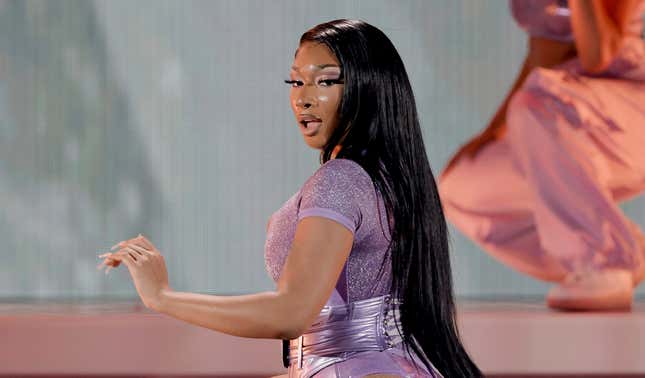
The original “hot girl,” Megan Thee Stallion, is nothing if not a trendsetter, and this time around, she’s using her influence to encourage people to take care of their mental health.
Over the weekend, the 27-year-old rapper launched “Bad Bitches Have Bad Days Too,” a digital archive of mental health care resources. The website contains links to several free therapy organizations, crisis hotlines, and resources specifically for LGBTQIA+ folks of color and Black men and women.
Megan has been very open in interviews about seeking therapy herself to deal with grief. In 2019, Megan’s mother, Holly Thomas died of a brain tumor, and her grandmother, who had helped to raise her, passed away soon after. Megan’s father died when she was just 15 years old.
In an interview with Taraji P. Henson, she opened-up about getting therapy to help her cope with the death of her parents.
“I’ve lost both of my parents. So now I’m like ‘Oh my gosh, who do I talk to? What do I do?’” she told Henson, according to BuzzFeed. “And I just started learning that it’s ok to ask for help. And it’s ok to want to go get therapy.”
The Houston rapper has also opened-up about the pressures of being in the spotlight and facing public ridicule after she says she was shot by rapper Tory Lanez.
“I became the villain,” Megan told Rolling Stone Magazine about the public reaction to her speaking out about the alleged shooting. (The case is still on-going, and Lanez denies the shooting).
For those who don’t remember, Megan alleged that in July of 2020, Lanez shot her after they left Kylie Jenner’s pool party. Lanez immediately went on the defense, implying that Megan was lying. Many folks online ran with that rumor, calling Megan a liar and a snitch.
In her interview with Henson, Megan said it was especially important in this moment to take her mental health seriously.
“I feel like right now mental health is more important to me, more than ever,” Megan told Henson. “I have more pressure on me than I feel like I used to have...when I was Megan, and I wasn’t as criticized and under such a magnifying glass as I am now.”
Promoting mental health care as a Black woman can be really challenging, especially if you’re in the public eye. So good for Megan for not only talking about mental health, but helping give people the tools to make it more of a priority in their own lives as well.

